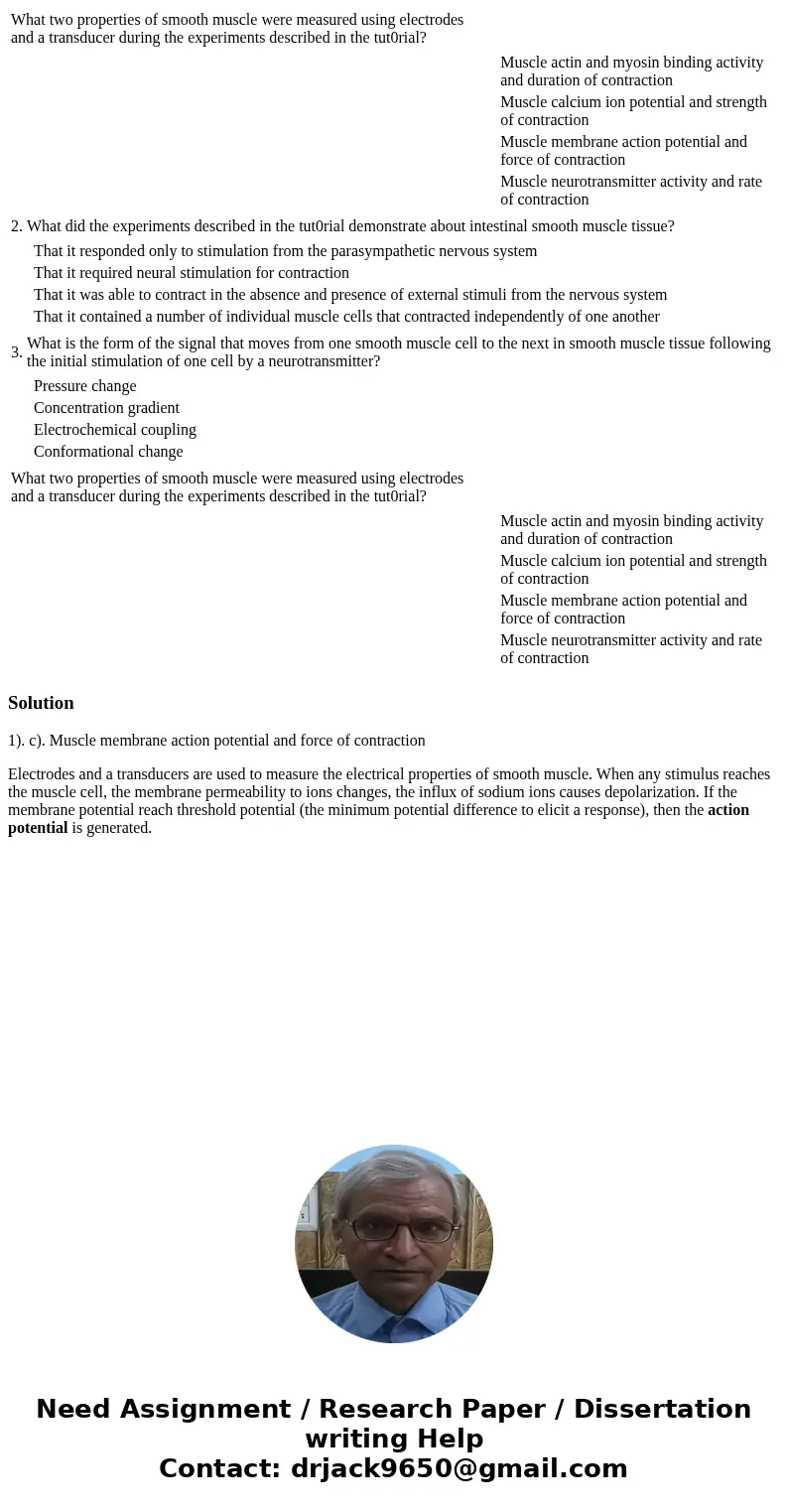| What two properties of smooth muscle were measured using electrodes and a transducer during the experiments described in the tut0rial? |
| | Muscle actin and myosin binding activity and duration of contraction | | Muscle calcium ion potential and strength of contraction | | Muscle membrane action potential and force of contraction | | Muscle neurotransmitter activity and rate of contraction | |
| 2. | What did the experiments described in the tut0rial demonstrate about intestinal smooth muscle tissue? |
| | That it responded only to stimulation from the parasympathetic nervous system | | That it required neural stimulation for contraction | | That it was able to contract in the absence and presence of external stimuli from the nervous system | | That it contained a number of individual muscle cells that contracted independently of one another | |
| 3. | What is the form of the signal that moves from one smooth muscle cell to the next in smooth muscle tissue following the initial stimulation of one cell by a neurotransmitter? |
| | Pressure change | | Concentration gradient | | Electrochemical coupling | | Conformational change | |
| What two properties of smooth muscle were measured using electrodes and a transducer during the experiments described in the tut0rial? |
| | Muscle actin and myosin binding activity and duration of contraction | | Muscle calcium ion potential and strength of contraction | | Muscle membrane action potential and force of contraction | | Muscle neurotransmitter activity and rate of contraction | |
1). c). Muscle membrane action potential and force of contraction
Electrodes and a transducers are used to measure the electrical properties of smooth muscle. When any stimulus reaches the muscle cell, the membrane permeability to ions changes, the influx of sodium ions causes depolarization. If the membrane potential reach threshold potential (the minimum potential difference to elicit a response), then the action potential is generated.

 Homework Sourse
Homework Sourse